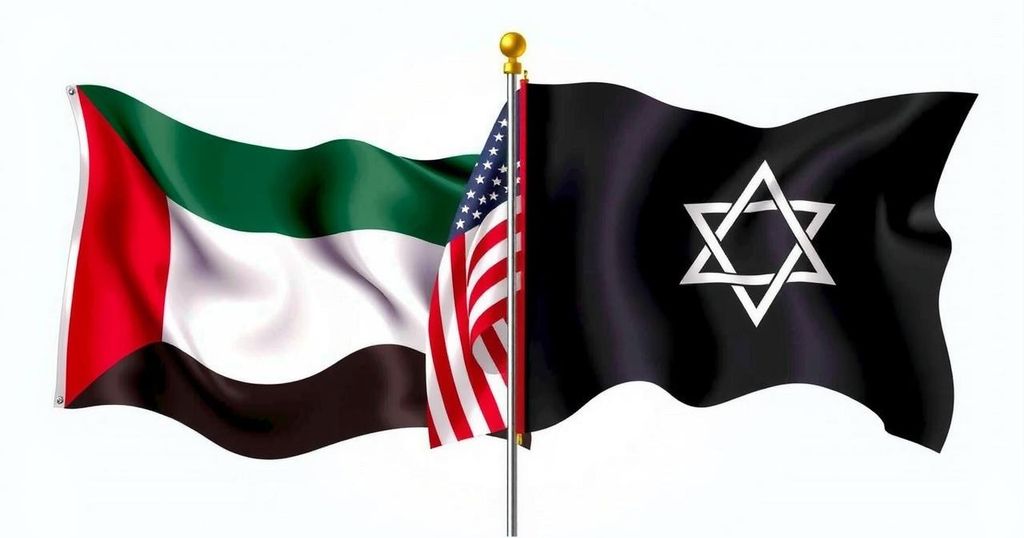The UAE, in collaboration with Israel and the US, is negotiating a provisional administration for Gaza following armed conflicts. This initiative aims to oversee governance and reconstruction until a reformed Palestinian Authority can assume control. The discussions explore significant reforms within the PA and the potential deployment of private military contractors. The impending challenges include concerns over governance integrity and international support for rebuilding efforts.
The United Arab Emirates (UAE) is currently engaged in discussions with Israel and the United States regarding a provisional governance structure for Gaza following the end of ongoing hostilities. Sources indicate that an arrangement could entail the UAE and the US, alongside international partners, overseeing governance, security, and reconstruction efforts temporarily, until a reformed Palestinian Authority (PA) can take over. This initiative reflects the unique diplomatic relations the UAE maintains with both the US and Israel, which may afford it some influence over the Israeli leadership.
While the specifics of the discussions remain unclear, they reportedly include proposals for significant reforms to the Palestinian Authority to enable it to govern effectively across Gaza, the West Bank, and East Jerusalem. The urgency for such reforms stems from the PA’s previous loss of authority in Gaza to Hamas in 2007 during a civil conflict, leading to a complex governance landscape that has persisted alongside ongoing military engagements. In addition, the UAE is reportedly advocating for a restructuring of the PA to eliminate corruption and enhance efficiency, with suggestions for an ideal prime minister such as former official Salam Fayyad, who is seen as capable of implementing essential reforms.
Complications arise as Israeli Prime Minister Benjamin Netanyahu reportedly opposes the current configuration of the PA, citing its inability to foster peace and its perceived promotion of anti-Israel sentiments within educational curricula. Furthermore, there are indications that UAE officials have contemplated utilizing private military contractors to aid in peacekeeping operations within Gaza; however, such measures could provoke discontent among Western nations due to past misconduct linked to these contractors in various conflict zones.
Regarding the reconstruction of Gaza itself, estimates suggest that the process could require extensive international support and billions of dollars, particularly in light of a devastating military campaign lasting over fifteen months. The potential for this international involvement presents both an opportunity for stabilization and a source of friction concerning local governance preferences, particularly among groups such as Hamas, which vehemently rejects foreign interventions in its governance affairs.
The discussions concerning Gaza’s governance after the ongoing conflicts involve critical considerations regarding the role of the Palestinian Authority, reconstruction efforts, and international involvement. The UAE’s unique position, as a state with diplomatic relations with Israel and a strategic ally of the United States, places it in a potentially influential role in shaping future governance structures. Amidst recent hostilities, questions surrounding the legitimacy and effectiveness of the PA remain contentious, given its previous loss of authority to Hamas and ongoing criticisms of governance practices. The prospects of integrating private military contractors and the involvement of other nations further complicate the situation, highlighting the need for a tactful approach to peace and governance in the region.
In conclusion, the ongoing negotiations led by the UAE, in collaboration with the United States and Israel, underscore the complexities surrounding governance in post-war Gaza. Factors such as the reform of the Palestinian Authority, potential international oversight, and the contentious role of private military contractors reveal the multifaceted challenges ahead. As efforts aim to ensure stability and reconstruction, maintaining credible governance structures remains crucial to fostering a sustainable peace in the region.
Original Source: www.jpost.com






